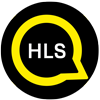The writing appears to be on the wall for the media. Newsrooms are shrinking, advertising rates for page views are declining (and shifting to social media), and many journalists are pondering their next steps.
It’s a growing problem worldwide and it started even before Covid, or BC, around the Global Financial Crisis of 2008, when news carriers were forced to institute cost-saving measures. In South Africa, pre-pandemic, we waved goodbye to HuffPost SA, Finweek and Afro WorldView/ANN7, and mourned the loss of more than 375 community print newspapers. Media24, Independent Media, Tiso Blackstar, Primedia and e.tv/eNCA all retrenched — some more than once — affecting hundreds of staff.
The pandemic heaped further pain on the sector. From 2020, the jobs bloodbath in the media sector saw Associated Media Publishing cease trading after four decades and its once-popular titles, Cosmopolitan, Good Housekeeping, Goeie Huishouding, House and Leisure, Marie Claire, Women on Wheels and others disappeared from the shelves. Media24 closed five magazines and two newspapers, reduced the publication frequency of some magazines, transitioned two newspapers to digital-only formats, and cut staff in related support services.
A month ago, when Daily Maverick controversially shut down for a day, the media house came under criticism for what some took as a PR stunt. Others saw it as a wake-up call to support journalists in the interests of democracy.
The reality is that the media space is shrinking, newsrooms are under threat, the business model is precarious, and in tough economic times, in an era of digital democratisation of information and news, paid-for content is a luxury.
Maintaining the status quo won’t deliver results for PR and Marketing pros. We need to rewrite the rules of engagement:
1. Consider new communications channels across owned outlets: Earned media is not the only available channel in the PR mix. To leverage campaign messaging, explore other options to expand comms channels across owned outlets, with podcasts, blogs, eBooks, white papers and webinars. While the media might be failing, consider the power of the podcast, which is expected to explode in coming years. PwC’s Media Outlook expects the number of South African podcast listeners to rise to 19 million this year, with the industry expected to generate over R300-million in revenue.
2. Quality, not quantity: Focussed media strategies should target more tier 1 priority journalists and titles. In a crowded media space, exposure in Tier 1 media outlets offer more than just mass reach: they provide unparalleled credibility, influence, and the ability to set industry benchmarks.
3. Be helpful: Marcomms professionals can build strong, mutually beneficial relationships with freelancers and media contacts by offering exclusive stories, access and interviews. Collaborative opportunities, long-term relationships, training, and financial support (in the form of hiring freelancers or paid coverage), enhance mutual benefits.
Our duty to do better
In a world where influence and influencing are paramount, the media landscape is profoundly altered. Social media platforms not only command most of the attention, they influence decisions and behaviours. This is also filtering through to journalism: spurred by the need for more audience engagement, some media outlets are turning to sensationalism, fake news and click-bait content — with a few even spreading downright disinformation — at the expense of quality journalism.
South Africa’s milestone elections are around the corner, the United States and the United Kingdom are expected to pick their parties in their autumn, and dozens of other countries are also set to go to the polls this year, which puts access to information at the heart of democracy.
The US has previously shown us how elections are vulnerable periods in history; it’s an ideal time for disinformation, propaganda, conspiracy theories and fake news.
As crews of journalists lose their jobs, what impact does such downsizing have on the flow of information, the industry’s capacity to produce quality reporting, the rise of misinformation and the erosion of public trust?
At the heart of the issue is communication, which leads us to the relationship between public relations and journalism. As professionals entrusted with the reputations of companies, brands and people, PRs need to appreciate and stand proudly in their role of amplifying the truth.
The PR task is to get the story right, while working in the confines of client briefs. Doing so entails working with select journalists, rather than mass media distribution (#spray&pray), because now more than ever, relationships are vital.
Last month, the PRCA Africa (Public Relations Consultants Association) launched its Ethics and Practices Board, to which I was invited as a council member. The board comprises expert PR and media heavy weights who share the same vision of raising operating standards and overall ethical conduct for communicators and their work across Africa.
Now, more than ever, PR should strive to do its best, in support of journalism and the global media calamity, and above all, ensure best and ethical practice while doing so.
For more information about the PRCA Ethics and Network Council, click here. For more information about Hook, Line & Sinker (HLS) and the agency’s award winning services, visit www.hooklinesinker.biz or follow them on Facebook, X, Instagram and LinkedIn.
About the author: Adam Hunter is head honcho at integrated PR and marketing agency, Hook, Line & Sinker (HLS). In just five years, Hunter has firmly established HLS as South Africa’s Best Small PR Consultancy of 2023 supporting some of the world’s biggest power brands across Africa, the Middle East and Europe. Hunter was a finalist for ‘South Africa’s Entrepreneur of the Year 2023’ by Business Partners Ltd and is a board member for the PRCA Ethics & Network Council. He is also a taskforce member for the United Nations Development Programme (UNDP) in support of the 2024 & 2025 sustainability agenda as Africa PR representative.
*This is a South African take on the article that appeared in PR Daily, titled ‘The media world is facing an unprecedented crisis. Here’s how PR needs to adapt’.




























